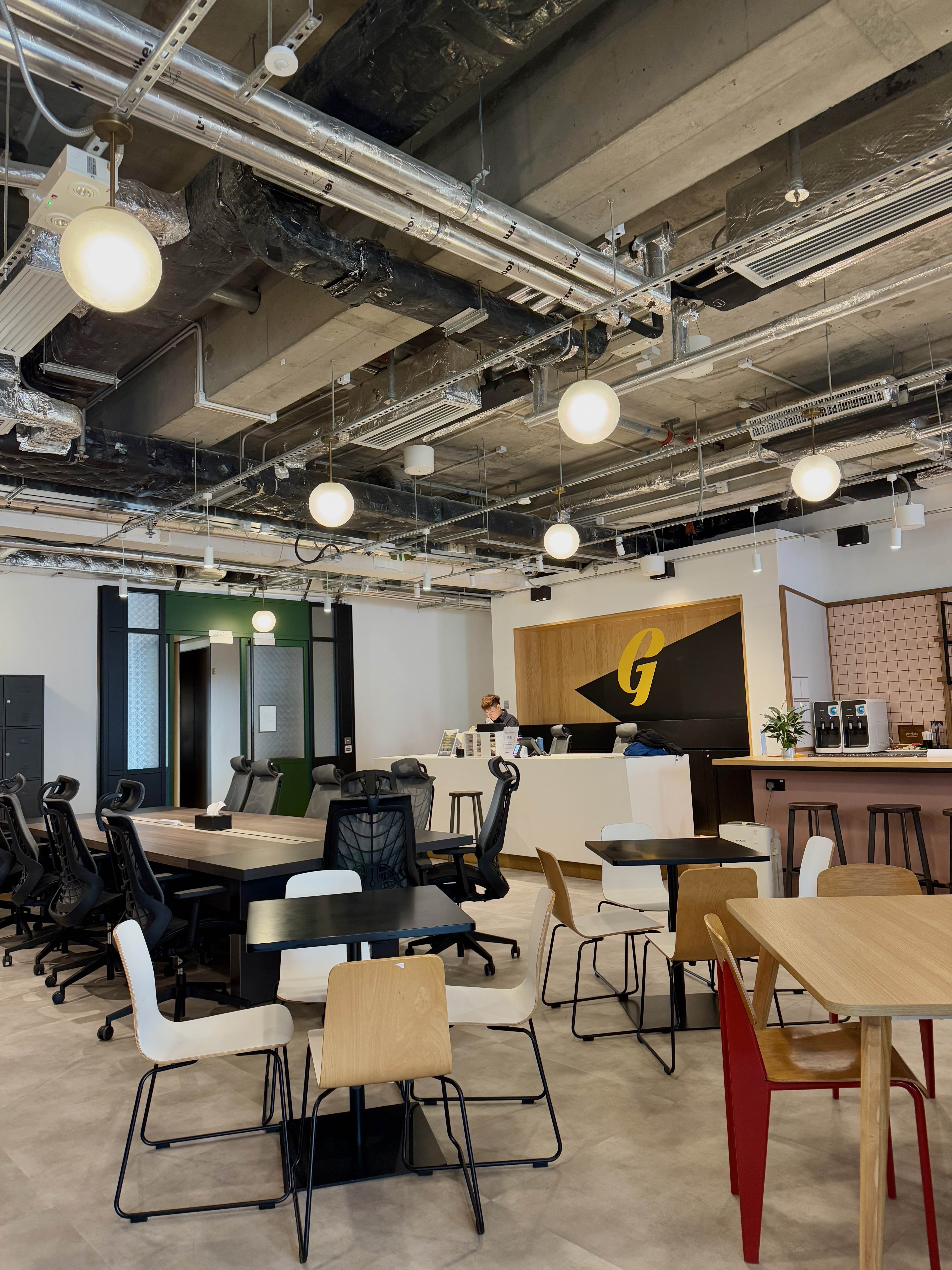LOCATIONS
Hong Kong
-
Facebook
-
LinkedIn
-
Instagram
-
Youtube
Author: Mandy Pao, Creative Director & Founder of Eloquence International
Since as early as the 90s, privacy protection on the internet has been a topic of contentious debate, between lawmakers, private companies, and individual citizens.
At the core of this discussion is the use of third-party cookies, and how much power tech companies should have in tracking their users.
The regulations around this are constantly changing, making it hard for digital markets to keep up. We asked for some sage advice from Mandy Pao, founder of Eloquence International, an integrated creative agency that specialises in marketing, PR and brand strategy.
Google announced earlier in the year that it will retire their third-party cookies.
The change was meant to happen this year, but, thankfully, it’s been pushed to 2023, which bought us marketers a little more time to sort ourselves out for something most of us probably aren’t yet ready for.
The change, nevertheless, will happen, and it could overturn the whole digital marketing industry and have huge implications for your privacy protection.
Cookies track clients' web movement and permit computerized distributors to target advertising. They are now impeded by some of Google's competitors, including Apple, Microsoft and Mozilla.
This is on the grounds that it intends to replace the framework with another one of Google's plans, which it claims is better for security yet at the same time permits advertising.
Google’s recommendations are now being scrutinized by the U.K. Competition and Markets Authority (CMA). The boycott had been made arrangements for 2022, and has now been pushed to 2023.
"It's become clear that time is needed across the ecosystem" in order to "get this right,” said Vinay Goel in a blog, privacy engineering director for Google's Chrome browser.
According to GlobalStats, Chrome’s global market share is as big as 65%.
Source: Adage
Since cookies arose as a way of following individuals on the web, stretching all the way back to the ‘90s, they've since become one of the scourges of the web.
If you're using Chrome right now, the sites you visit will add cookies to your device. They come in two structures: first-and third party cookies:
This exceptionally customized, meddling, approach is then used to show you designated ads – that’s most likely why the pair of pants you checked out last week are currently following you around the web, or why a shop can know you're pregnant before you've told your family.
In any case, following individuals using cookies has been leaving a bad taste for quite some time: both Firefox and Safari have added blockers that effectively prevent cookies from working.
But Google wants to pivot and is interested in what competitors are doing. In January 2020 Google declared that it would start removing cookies and replace them with a brand-new thing.
“Privacy-preserving and open-standard mechanisms like the Privacy Sandbox can sustain a healthy, ad-supported web in a way that will render third-party cookies obsolete,” said Justin Schuh, Director of Chrome engineering at Google, in an announcement.
Source: AdTech Explained
Google announced Privacy Sandbox before it revealed plans for removing cookies.
The Privacy Sandbox is basically a large mix of various innovations Google is building – as they talk with advertisers and different designers – to replace third-party cookies.
There have been recommendations regarding how internet browsers can handle spam, how individuals log in to sites, and ways of changing the digital advertising industry.
There are instruments that hope to gauge how much individuals click on ads and the following purchases and offer different ways of showing ads online — all of these elements are essential to advertisers.
Digital advertising generally works in three unique ways:
Subsequently, Google's competitors are now building options that will probably have a better understanding of a site’s content, giving site owners the essential information that would have otherwise been held by Google.
With these changes, the type of ads that will experience the biggest impact are interest-based ads.
In hopes of lessening the blow, Google is entertaining the idea of introducing a new system called Federated Learning of Cohorts, FLoC.
Source: 9to5Google
FLoC is a new system Google is designing to show you ads it thinks you’re interested in. In March 2021, Chrome began testing FLoC by sneakily putting it into millions of internet browsers; Google stated the system is 95% as powerful as third-party cookies, but advertisers and marketers are not so sure...
FLoC groups your profile together with others that may have similar interests as you.
You're then added to what Google calls a Cohort, which is updated weekly, alongside millions of others. How would this change the game for marketers?
Here’s an example, as Google notes, of how this could work:
“an [advertising] platform might learn from an online shoe store that browsers from cohorts ‘1101’ and ‘1354’ seem interested in the store's hiking gear. From other advertisers, that [advertising] platform learns about other interests of those cohorts.”
Websites showing advertisements can then gather other pieces of information about you, based on your cohort, to show you other things you might be interested in.
Google says this is completely done on your own devices and that it’s able to do this without relaying information back to Google’s servers or third-party companies, which means your privacy is better protected.
Google believes this new method makes it harder for advertisers to put together ads based on browsing history and reduces the chance of being identified. Not everyone, however, sees it the same.

Source: Eloquence International
If all the proposals that Google has brought up actually go ahead, then marketers will need to get familiar with FLoC and most likely make small shifts in the way ads are done.
Google will still technically show you targeted ads, but it will do so in a less creepy way. As for how people feel about this, the consensus seems mixed.
Many parts of the FLoC proposals and the wider Privacy Sandbox have been criticized by regulators.
“Instead of re-inventing the tracking wheel, we should imagine a better world without the myriad problems of targeted ads,” notes Bennett Cyphers of the Electronic Frontier Foundation, a civil liberties group.
While putting users into cohorts does give users and trackers a little more distance, Cyphers still believes FLoC’s privacy measures are not enough and that the system still allows third-parties the potential to reveal sensitive information about people.
Beyond criticisms like this, some of Google’s competitors have already begun rolling out anti-FLoC tools to block any data tracking.
Furthermore, many are now speculating that Google will present users with the opportunity to decide if they want to opt out of FLoC or if they’re okay with it, so at least the choice is there.
Regulators, like the European Commission, are currently looking into whether the removal of third-party cookies — and Google’s Privacy Sandbox and FLoC plan — places Google in a dominant position and whether the change will be anti-competitive.
Marketers and advertisers will need to sit patiently and see how the digital landscape will change.
Source: Eloquence International
EQ is a fully integrated New Gen creative agency based in Hong Kong, working globally.
They’re a one-stop-shop for data, design, marketing, PR, branding, strategy and all of the above, working with clients to optimize communications at every stage of the process.
Keep in touch with them on Instagram & Facebook, or learn more about their work on their website!
Garage Society helps businesses and individuals work better, through WorkStyle solutions tailored for them.
We all work differently, which is why each Garage workspace is unique in location, design, and community, offering spaces and experiences that fit around you.
Whether it’s hot desks, private offices, or custom spaces for enterprises and MNCs, we’ve got a WorkStyle solution for you.
Looking for a flexible workspace? Get in touch with us.
 Garage Blog
Introducing Garage Society's Newest Premium Workspace at Tower 535 Causeway Bay
Garage Blog
Introducing Garage Society's Newest Premium Workspace at Tower 535 Causeway Bay
We're thrilled to announce the opening of our newest Garage Society location in the heart of Hong Kong's most dynamic business district!
Garage Society Causeway Bay brings our signature blend of community, innovation, and premium workspace to Causeway Bay's prestigious commercial hub.
 Garage Blog
From Flat White to Flexspace - The Best Coffee Spots Near Garage Society Locations
Garage Blog
From Flat White to Flexspace - The Best Coffee Spots Near Garage Society Locations
Looking for the perfect cup of coffee to fuel your workday?
Members enjoy free coffee 24/7 in our spaces, but sometimes they need a change of scenery (or bean!). That's why we've compiled this guide to our members favourite independent coffee shops near each Garage Society location!
Whether you're a dedicated hot desk member or just exploring flexible workspace options, stay caffeinated and inspired with our picks below: